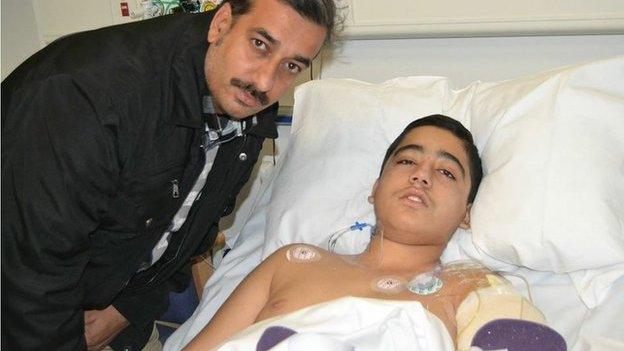The teenager telling pupils how his friends were shot dead
- Published
Ahmad Nawaz survived the Peshawar school attack
More than 130 children died when the Taliban attacked a school in Pakistan in 2014. Ahmad Nawaz - then aged 14 - only survived by playing dead. Now, he is visiting UK schools to teach an anti-radicalisation message.
"I was surrounded by the dead bodies of friends, with whom I was laughing, talking and joking moments earlier," Ahmad Nawaz tells an assembly of more than 100 schoolchildren in Birmingham.
The 16-year-old speaks calmly and openly as he relives his ordeal in the hope it can deter young people from being radicalised.
"I always thought that school was a safe place, not a place where children would be brutally massacred. All I could see was blood and killing," he tells the pupils, many of whom are visibly moved.
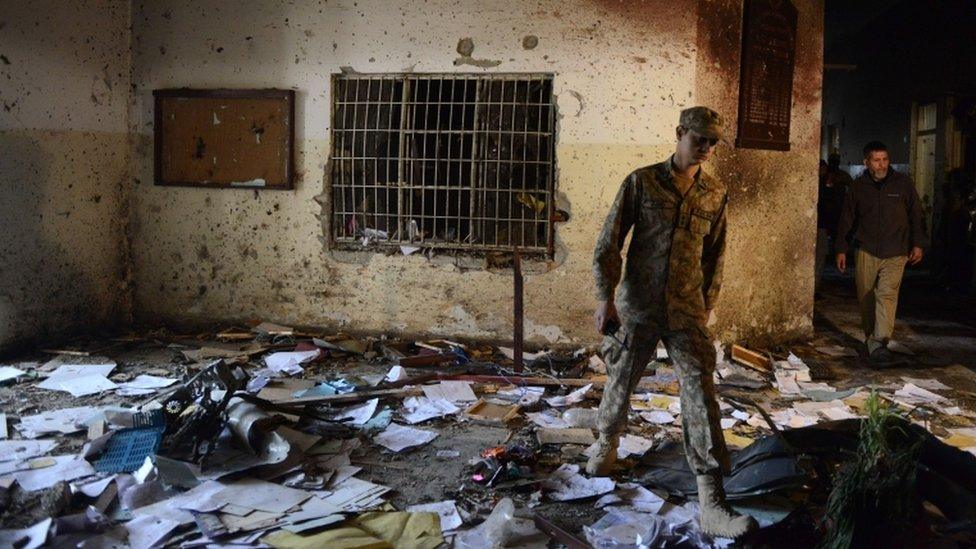
A Pakistani soldier walks amid the debris following the Taliban attack
Ahmad lost his younger brother in December 2014, when the Taliban attacked Peshawar's Army Public School - a school that teaches boys and girls from both military and civilian backgrounds.
Seven Taliban attackers wearing bomb vests cut through a wire fence to gain entry to the school, before launching an attack on an auditorium where children were taking an exam.
In one of the worst assaults in the country's recent history, the gunmen then went from room to room, shooting pupils and teachers in a siege that lasted eight hours.
The attack left 141 people dead - 132 were children.

Find out more
Watch the Victoria Derbyshire programme on weekdays between 09:00 and 11:00 on BBC Two and the BBC News channel.

Ahmad was shot in the arm, and survived only by playing dead.
"The terrorists were merciless, they would shoot children until they died. My school uniform was red in blood," he says.
The gunmen set fire to several of the bodies, as they moved through the school building.
Ahmad saw his teacher "burning alive", but says: "I couldn't help because my wounds did not let me."
He says he still sees the incident in his nightmares.
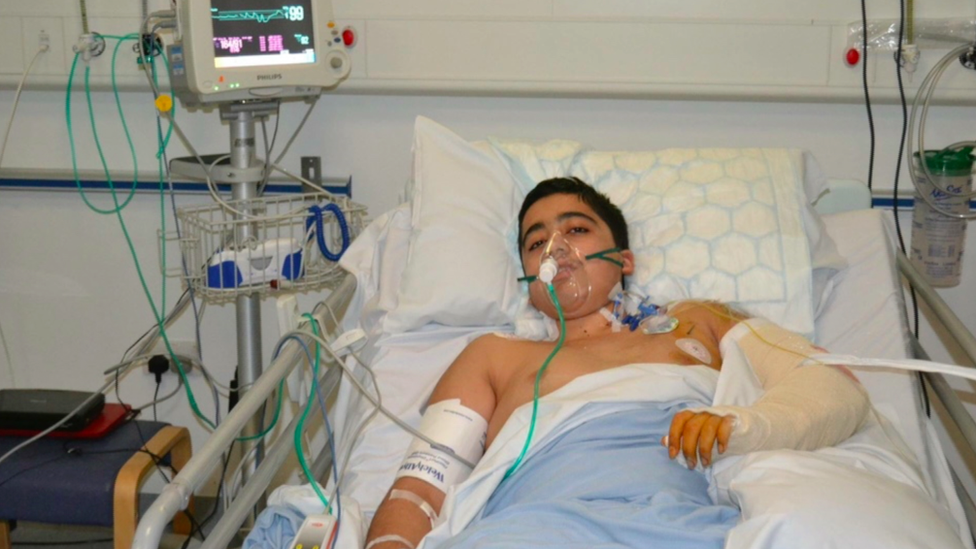
Ahmad was shot in the arm by a Taliban gunman
Ahmad was eventually rescued from the building, and put in an ambulance of dead bodies to be transported to a nearby hospital.
He later flew to the UK for surgery, at the Queen Elizabeth Hospital in Birmingham.
Nobel Peace prize winner Malala Yousafzai was treated at this same hospital after being shot by the Taliban in 2012 - and visited Ahmad while he recovered.
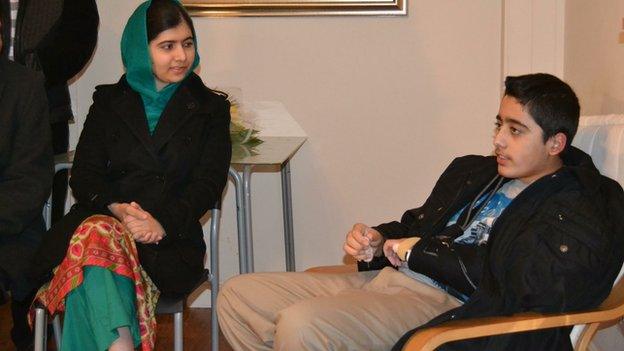
Nobel Peace Prize winner Malala Yousafzai visited Ahmad to offer support to him and his family
Ahmad now lives with his family in Birmingham.
He has visited more than 10 schools so far, the latest one being Rockwood Academy.
Formerly known as Park View Academy, it was one of several Birmingham schools caught up in the Trojan Horse inquiry, where it was claimed a group of hard-line Muslims were taking over schools in the city.
Ahmad tells the pupils he has "decided not to be afraid and step back".
"I will continue to share mine and my friends' stories," he says.
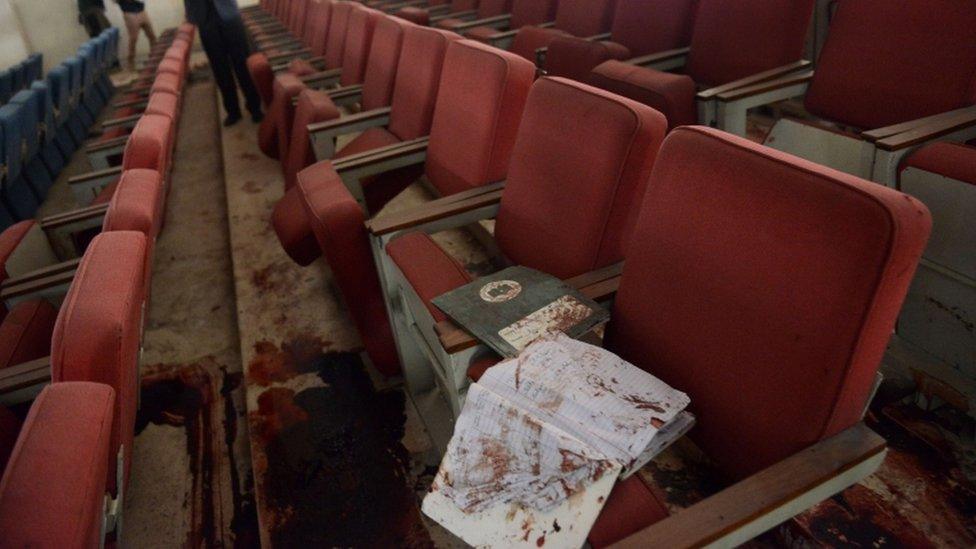
The gunmen roamed the school for about eight hours
"I want to say to the students who are inspired by the terrorist ideologies, and are running towards different countries like Syria and Iraq, that I am a victim of those terrorists. They do not belong to any religion.
"I know Islam doesn't teach us about brutality, it teaches us about love and peace."
His story seems to have captivated many of those listening.
"I really felt upset and shocked," says one young boy. "He's being brave and courageous," adds another.
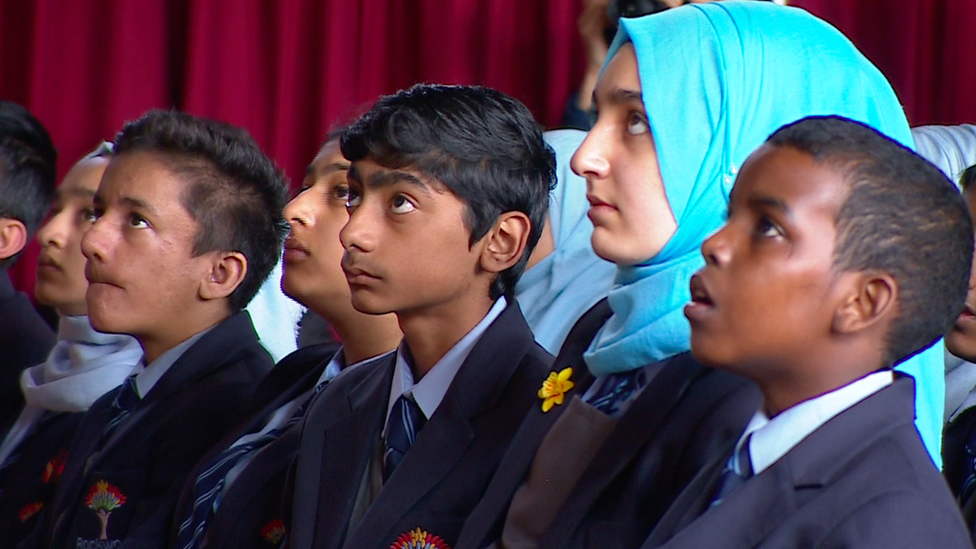
Back at his home, Ahmad explains how much of his motivation to spread his message comes from his brother.
Ahmad's parents had originally told him, while he laid in hospital, that his younger brother Haris had been moved to another school after the attack.
But 15 days later, he learned from a friend that Haris had died.
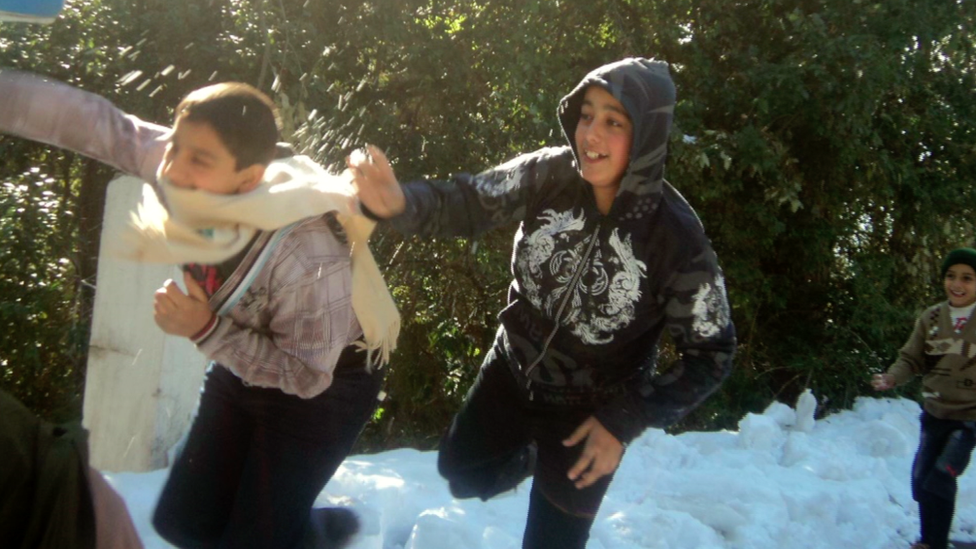
Ahmad with his brother Haris
Haris' death is, understandably, still at the forefront of his family's daily life.
"I have no words to explain. Still we are in pain," his mother, Samina, says. "We want to [move on], but we can't."
Ahmad hopes that his work might spare other families the pain of losing a loved one.
"When we educate [pupils], we can finish the ideology of terrorism. I want this message to be spread throughout the world as much as it can," he says.
"I think I have stopped students from being radicalised and doing terrorist activities, and I'm proud of myself."
- Published17 December 2014
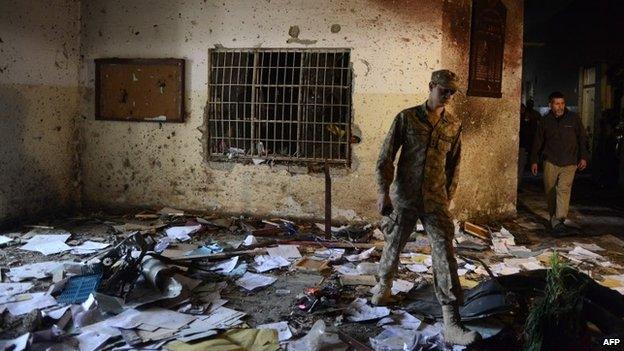
- Published6 July 2015
